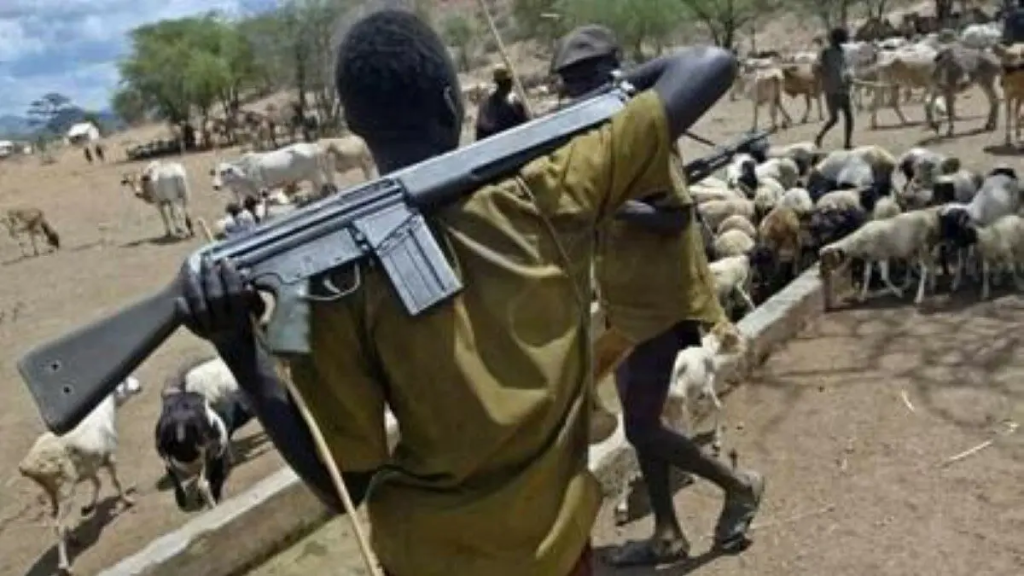The recent murder of Sunday Oche, the Labour Party Chairman in Benue State, highlights the dire state of security in many regions of Nigeria. In a country grappling with numerous security challenges, the death of a political leader in an ambush by suspected herdsmen is both tragic and emblematic of broader systemic failures. This incident demands urgent attention and raises critical questions about how to safeguard lives, especially in vulnerable rural communities.
Nigeria has been plagued by violent confrontations between herdsmen and farmers, particularly in the Middle Belt region, which includes Benue State. This conflict is often framed as a competition over resources—land and water. However, the consistent lack of adequate security measures has allowed these tensions to morph into deadly confrontations. Mr. Oche’s murder is just the latest in a long line of attacks on civilians, politicians, and farmers alike. Without a robust security apparatus in place, these violent incidents will continue unabated. The time to address this issue is now.
One of the most effective ways to enhance security in rural areas like Igumale, where the Labour Party chairman was killed, is through the development of localized security systems. Communities must take action to protect themselves. While federal and state forces play an essential role, they often stretch too thin to cover every corner of the country. Community-based initiatives, such as neighborhood watch groups and volunteer security forces, can provide an additional layer of protection. These local bodies can collaborate with official forces to ensure quicker responses to potential threats, thereby minimizing the chances of ambushes like the one that claimed the life of Mr. Oche, the Labour Party chairman.

The Nigerian government needs to reassess its approach to handling security, especially in regions prone to violence. First, it is crucial to address the systemic corruption that often hampers law enforcement efforts. Too frequently, corrupt officials siphon off resources allocated to the police and military, leaving them ill-equipped to respond to emergencies. The government must enforce stricter accountability mechanisms for those tasked with national security. Furthermore, policies must be restructured to ensure better funding and distribution of security personnel in rural areas.
Beyond corruption, there is a pressing need for reform in the country’s agricultural policies. Land-use reforms that address the concerns of both herders and farmers can help ease tensions. Creating clear, legal pathways for resource-sharing will reduce the frequency of violent clashes over farmland and grazing routes. This proactive approach can be the first step in mitigating conflicts that often lead to fatalities.
Technology must play a key role in ensuring safety, especially in remote and vulnerable areas. Drones, satellites, and better communication networks can improve monitoring in these regions. For example, drones could patrol farmland, sending real-time data about suspicious movements. These tools can help law enforcement respond quickly to ambushes like the one that killed Oche. Implementing early warning systems to alert authorities and communities could greatly reduce loss of life.
Another crucial factor in preventing further tragedies is the reformation of law enforcement training programs. Police and military units deployed to conflict-prone areas need specialized training in conflict resolution, community engagement, and crisis management. Too often, law enforcement personnel are viewed with distrust by the very communities they are supposed to protect. By fostering better relationships with local residents and building trust, law enforcement can obtain valuable intelligence that could preempt violent incidents. This shift requires not just better training but also a change in the culture of policing, where the focus must be on serving the people rather than intimidating them.
The public also plays a vital role in boosting security efforts. Authorities must launch awareness campaigns to teach citizens about vigilance and cooperation. When people share information and report suspicious activities, law enforcement can respond more effectively. After Oche’s death, local youths quickly mobilized, though too late to save him. A coordinated community effort, with strong information-sharing, might prevent future ambushes. Public engagement can also pressure government officials to prioritize security through policy changes.
At the root of many violent confrontations is a lack of dialogue between conflicting parties. In the case of the herdsmen-farmer clashes, there is an urgent need for reconciliation efforts aimed at fostering mutual understanding. Government agencies, non-governmental organizations, and traditional leaders must come together to mediate between these communities. Creating platforms for dialogue can help resolve land and resource disputes peacefully, preventing deadly conflicts. Additionally, economic empowerment programs can offer alternatives to violence for those facing financial desperation.

The killing of Labour Party Chairman Sunday Oche highlights Nigeria’s fragile security in conflict areas. Ensuring safety requires cooperation among local, state, national authorities, and communities. Strengthening security, reforming agricultural policies, using technology, and raising awareness can reduce violent attacks. Addressing violence’s root causes with comprehensive action is essential to break the cycle of bloodshed. Mr. Oche’s loss is tragic but could spark change that saves many lives. His death should motivate efforts to improve security across Nigeria’s troubled regions.
Thank you for your time here. This means a lot to us. If you are passionate about driving change through job creation, send us a mail at info@insidesuccess.com. Kindly find other related articles on our website and follow us on Instagram @InsideSuccessNigeria to get more updates.



Leave a Reply